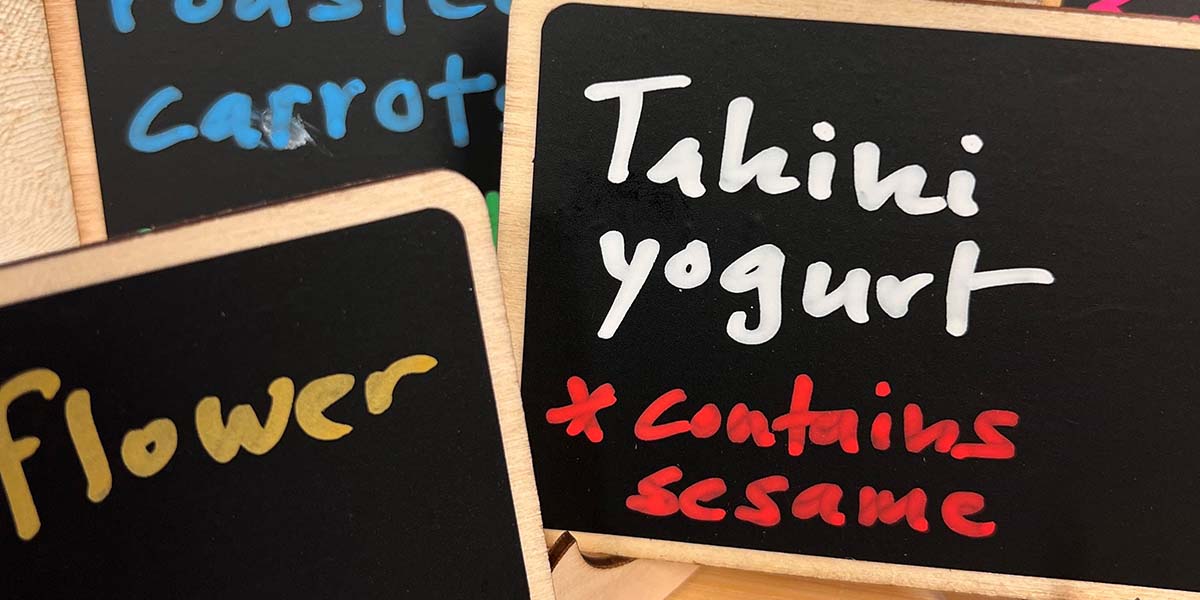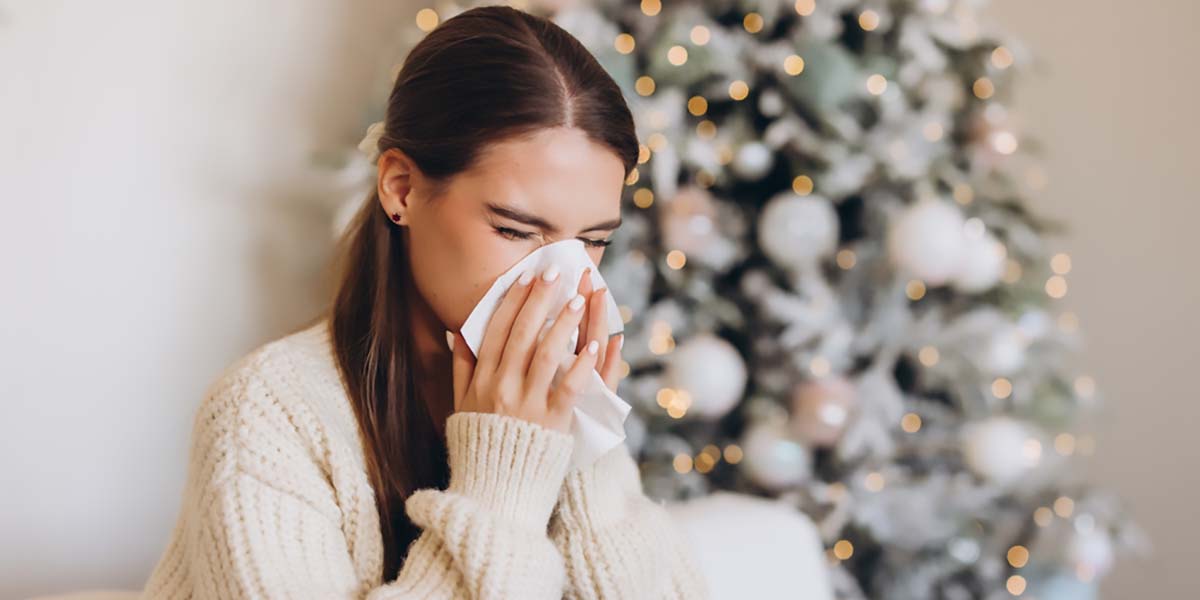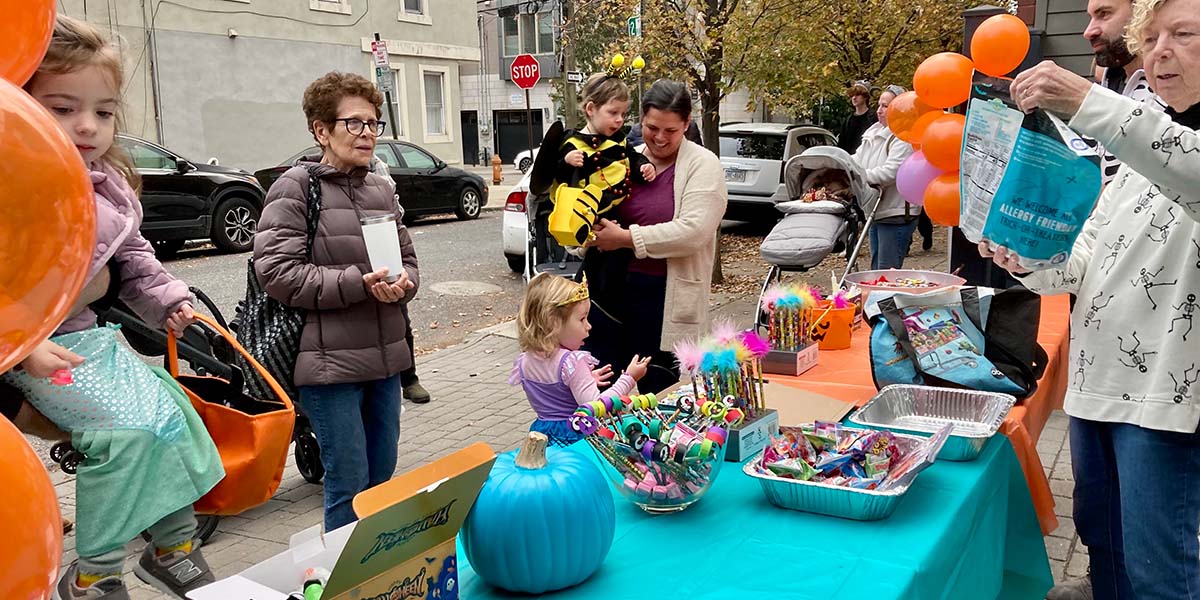For many families across Philadelphia, Bucks County, and Montgomery County, Halloween is filled with excitement,…

Food Allergies and the Holidays: 7 Safety Tips Every Good Host Should Know
As people look forward to gathering safely for holiday celebrations this season, it’s the perfect time to consider an additional precaution—protecting those with severe food allergies.
Pecan pie, sweet potatoes, green bean casserole and, of course, plenty of stuffing top the list of the mouth-watering favorites that will grace holiday tables. But for someone who has severe food allergies, any one of them could mean a trip to the emergency room. Navigating holiday gatherings can be filled with emotion and anxiety, as evidenced in this social media post by the mother of a child with food allergies:
“My daughter has severe food allergies to tree nuts. I have to remind my in-laws and extended family of her extreme allergy every time we visit. The holidays are the most difficult. They will make unlabeled desserts with nuts and say, ‘just because she can’t have nuts doesn’t mean the rest of us can’t.’ It crushers her. Labeling foods should be part of the table display and hopefully a bit of understanding and empathy served for all to feast on.”
The most common triggers include milk, eggs, peanuts, tree nuts, fish, shellfish, soy, wheat, and sesame. With food allergies on the rise, it’s likely that you will encounter a guest who must avoid certain foods.
Here are seven tips to help you host an inviting, inclusive, and safe holiday gathering:
- Communicate in advance: Ask family members or guests ahead of time about any food allergies they have so you can accommodate special needs. If you send invitations, ask people to inform you of food sensitivities when they RSVP.
- Plan your menu: With some advance planning, you may be able to create a menu that excludes a guest’s allergy trigger. More likely, you will need to create some optional dishes for allergy sufferers.
- Consider ingredient alternatives: Depending on the allergy, you may be able to swap ingredients. For instance, choose almond milk or oat milk instead of cow milk in mashed potatoes. Thicken gravy with corn starch rather than wheat flour. For desserts, try bananas or applesauce instead of eggs. Seeds, crumbled pretzels and oven-roasted beans can provide just the right crunch instead of peanuts!
- Prep safely: It’s important not to cross-contaminate prep areas like counters and cutting boards. If time permits, prepare allergen-free foods separately.
- Separate: Keep serving utensils reserved just for the allergen-free foods. If allergies are severe, keep special dishes at a distance from food that may include allergens to avoid airborne contamination.
- Label everything: All dishes should be labeled with ingredients. For those dishes that include specific allergen(s), make sure they are clearly noted. If you feel creative, make the labels part of the festive décor.
- Potluck advice: If friends ask to bring a dish, ask them to include a label with all ingredients. Advise them of the need to avoid certain ingredients that could trigger a guest’s allergy. Individuals with allergies can be invited to bring a dish they love to share as well.
Dr. Manav Segal, of Chestnut Hill Allergy & Asthma Associates, is a leading Philadelphia-area allergist and immunologist who treats asthma and allergies in children and adults and provides breakthrough Oral Immunotherapy (OIT) to treat severe food allergies. Dr. Segal is Board certified by the American Academy of Allergy, Asthma and Immunology and the American Board of Internal Medicine, and is Chief of Allergy & Immunology at Chestnut Hill Hospital.



